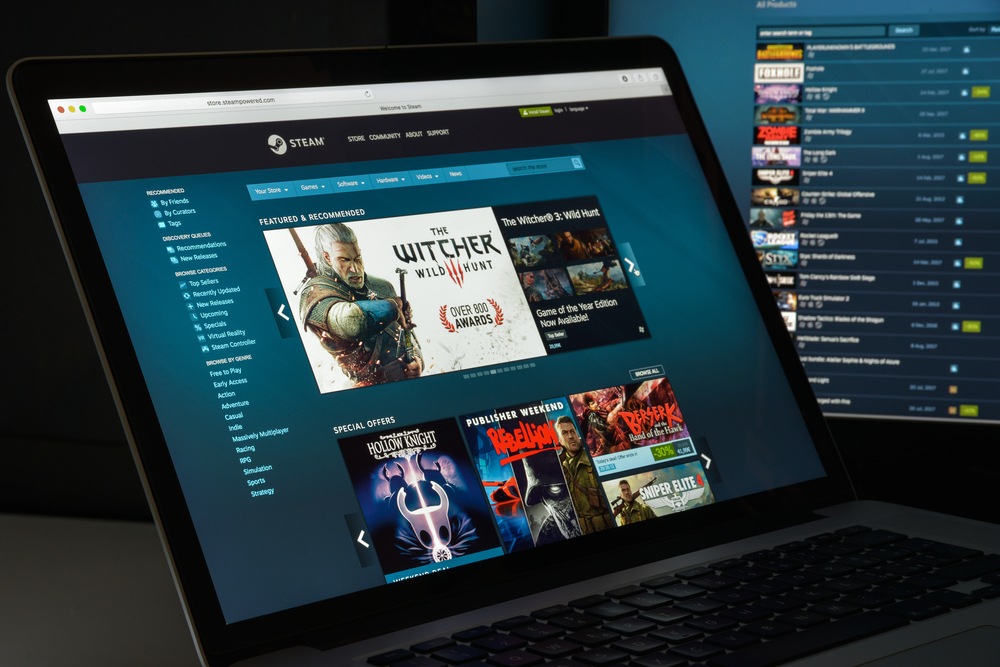Valve Hypes Machine-Learning Game Recommender after Steam Sale Disaster

Valve's latest tool might make up for the unmitigated disaster of its Steam store sale. | Source: Shutterstock
This year’s Steam summer sale was a lot more underwhelming that many would have thought. The problem wasn’t with the discounts; instead, players and developers were disappointed with how Valve incentivized more sales.
Valve’s ‘Grand Prix’ meta game for the sale confused both customers and studios, with the addition encouraging users to spend more money on-platform to earn rewards.
Players were also tasked with racing against each other to earn points. These could then be used against games on their Wishlist. Despite its simple premise, it didn’t achieve the goals that the gaming store was looking for.
Steam Sale Problems
Much of the confusion was driven by the sub-rules and systems that players had to navigate through to win points. This was compounded by a lack of explanation from either Valve or Steam throughout the process.
One problem that many players had is that they removed games from their Wishlist to drive up the odds of receiving their preferred titles for free. In reality, gamers would have received whichever game was at the top of their list.
With the Grand Prix, players were broken up into teams to win points together. This caused more irritation among the community, as some teams were able to take advantage of the system to gain a significant lead. This resulted in small groups winning the majority of points, and the free games that came with it. After several days, Valve rebalanced the meta game to minimize this.
In a statement about the issue, the company said:
“Thank you to everyone who participated in the Grand Prix. We realize that the race track had some unexpected turns—we tried to straighten them out when we could, and we’ll anticipate the curves better next time we invite you to the races.”
Unfortunately, gamers were still left disappointed once the Steam summer sale was finished.
Introducing Interactive Recommender
Steam looks to undo much of this damage with its Interactive Recommender. The AI-driven software uses machine learning to determine a player’s tastes before recommending titles that they may be interested in. Describing the Interactive Recommender , Valve says:
“For this experiment, we look at your play history and generate a list of titles personalized just for you. You can browse well-known titles or hunt for hidden gems with the popularity slider. If you’re just looking for newer titles, you can also adjust the time window of the results.”

The new feature is one of three that are being rolled out for the gaming store as part of a new initiative. Valve is releasing what it calls Micro Trailers. As the name suggests, this focuses on ultra-short game trailers, typically six seconds or less. Similar to this is The Automated Show, a half-hour long program that consists of new game trailers. Many have noted that these could help indie developers gain more traction on the platform.
With the new additions, hopefully, Steam will overcome many of its problems before its next sale.